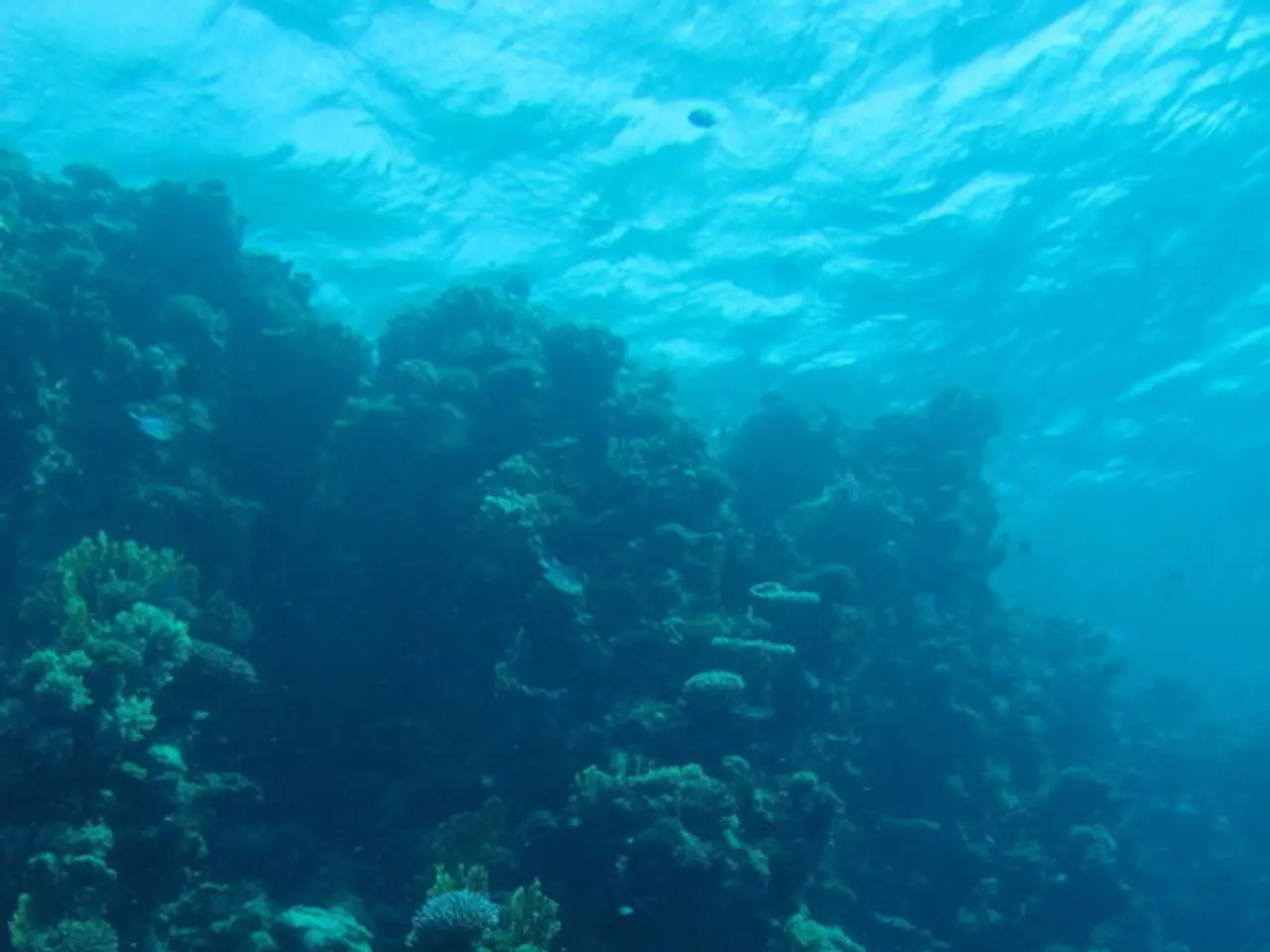Marine life faces perilous conditions as ocean acidification escalates beyond tolerable levels
The disruption to ecosystem dynamics posed by ocean acidification is a serious threat to the global fishing industry, a vital source of food and income for millions of people around the world. This alarming issue has been highlighted in a report released by the World Economic Forum (WEF), warning about the escalating threat of ocean acidification.
Ocean acidification is caused by the oceans absorbing excess carbon dioxide (CO2) from the atmosphere, primarily due to human activities such as the combustion of fossil fuels. Once CO2 is dissolved in seawater, it triggers chemical reactions that make the ocean more acidic. This acidification is affecting a broad range of marine species with calcium carbonate-based shells or skeletons, including corals, molluscs, crabs, and pteropods.
Acidic seawater makes it harder for these organisms to form and maintain their structures, leading to population declines that disrupt entire marine food chains and contribute to coral bleaching. Researchers describe the current state of ocean acidification as a "ticking time bomb". The critical threshold for ocean acidification was surpassed more than five years ago, according to leading scientists.
The WEF is calling for immediate international action to prevent irreversible damage to marine biodiversity and the global fishing industry. Tackling ocean acidification requires coordinated global policy, strategic investment, and heightened public awareness.
Crucial measures to combat ocean acidification include investment in carbon capture technologies, expansion of renewable energy sources, and conservation of coastal ecosystems such as mangroves and seagrasses. International cooperation can help prevent irreversible damage from increased ocean acidity primarily by reducing carbon emissions globally and by investing in carbon capture technologies and ocean protection measures.
Key international actions include aggressively tackling fossil fuel carbon emissions, advancing global legal frameworks and treaties to protect ocean areas, investing in ocean-based carbon dioxide removal techniques and protection of "blue carbon" ecosystems, developing and scaling ocean-based carbon capture and storage technologies, and facilitating international collaboration in ocean monitoring and data sharing.
The UK's Plymouth Marine Laboratory and the US National Oceanic and Atmospheric Administration (NOAA) were involved in the research that led to these findings. Failure to act on ocean acidification could result in irreversible harm to marine life and devastating consequences for human societies.
In summary, international cooperation combines emission reductions, legal protections, investment in nature-based and technological carbon capture, and collaborative monitoring. Together, these actions increase the chances of preventing irreversible ocean acidification damage by addressing root causes and enhancing the resilience of marine ecosystems. Ocean acidification is no longer a future risk but a present-day crisis.
- The World Economic Forum (WEF) has emphasized the need for international cooperation to prevent irreversible damage to marine biodiversity and the global fishing industry, caused by the escalating threat of ocean acidification, which is primarily due to human activities and the disruption of environmental science.
- The critical threat of ocean acidification to health-and-wellness, especially seafood resources, requires immediate attention through coordinated global policy, strategic investment, and heightened public awareness in international science and technologies, such as carbon capture and environmental-science-based conservation efforts like ocean monitoring, data sharing, and "blue carbon" ecosystem preservation.
- To effectively combat climate-change-related ocean acidification, international cooperation is essential, including research initiatives led by institutions like the UK's Plymouth Marine Laboratory and the US National Oceanic and Atmospheric Administration (NOAA), as well as the implementation of therapies-and-treatments like renewable energy investment and the development and deployment of carbon capture technologies on a global scale.




